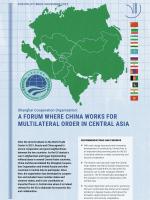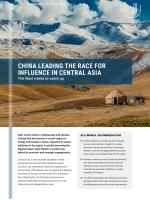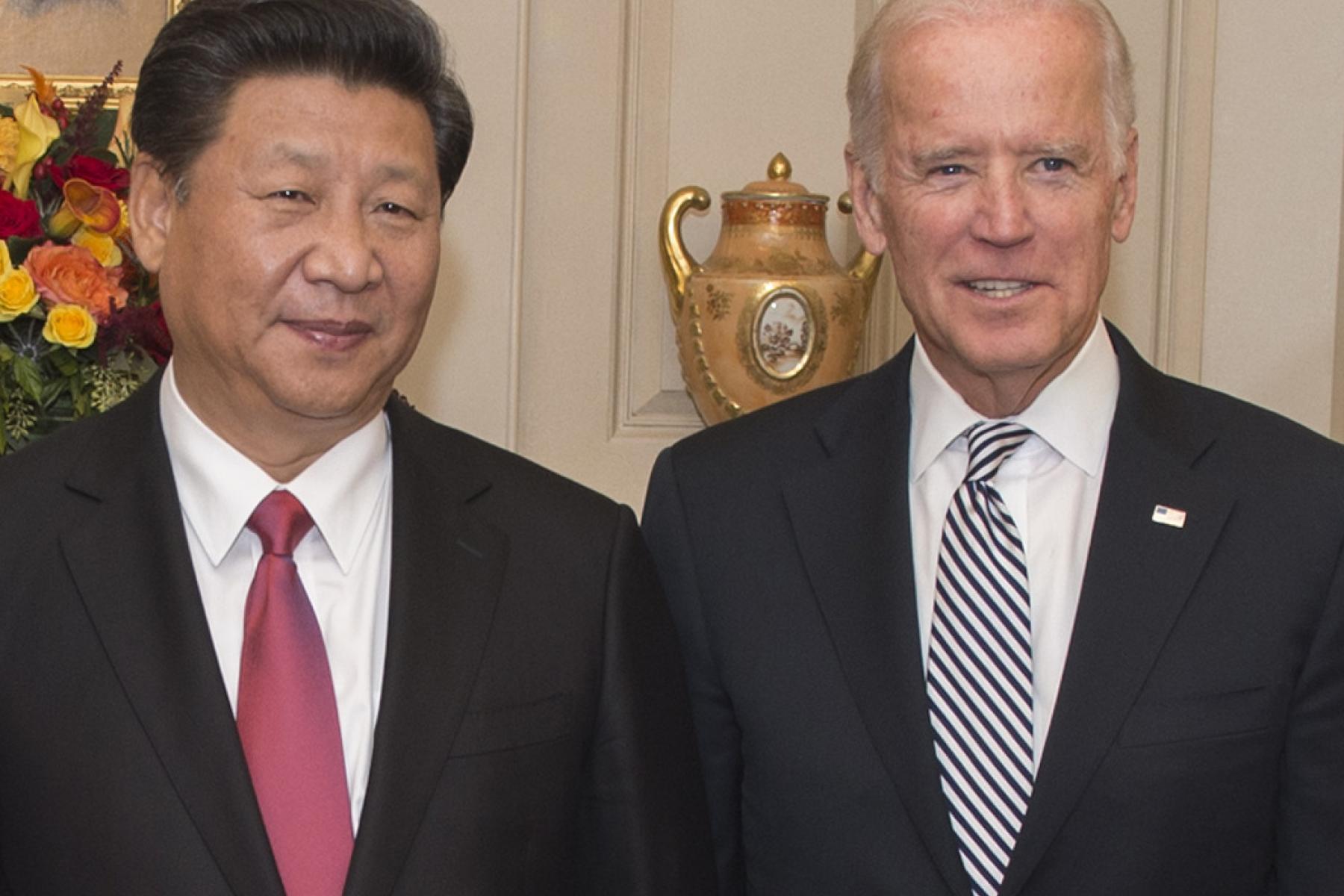Shanghai Cooperation Organisation
Since then, the organisation has developed its cooperation and included more member states and observer states, and it now constitutes an important forum in Central Asia where it is indeed relevant for the EU to elaborate its economic ties and collaboration.
The Shanghai Cooperation Organisation has been described in Western media as a defence alliance, à la NATO, facing the West and the USA. However, it is not a defence alliance but rather a forum for cooperation that includes security policy issues.
- With vast energy resources and increasing development in connectivity, Central Asia is an important and promising area for the EU to develop relations in trade, connectivity and security cooperation.
- The Ukraine war has both made the Central Asian states worried by Russia’s expansionist strategy and made them an instrument for Russia to use in order to bypass Western sanctions. The EU should take advantage of this situation to increase collaboration with Central Asia.
- The latest diplomatic and economic activity by China in Central Asia has shown an increased tendency to bypass Russia, which gives the EU better opportunities in Central Asia for economic and security cooperation.
Showdown with the American liberal world order
If there is one thing that Russia and China completely agree on, it is that the liberal world order the American superpower has tried to create must end. This mutual understanding was in part a basis for the Shanghai Cooperation Organisation.
The two countries have different reasons: Russia evidently wants to restore its old empire, which China does not support because it involves violations of the territorial integrity of sovereign states. China has, in official statements related to the Ukraine war, underlined this and has not recognized Russia’s annexation of Crimea.
After a meeting with China’s deputy foreign minister Le Yucheng, the Ukrainian deputy minister Yenin quoted his Chinese colleague as saying: ”The key thing is that the government of China does not recognize Russia’s attempted annexation of Crimea and has informed the country’s central and regional authorities about a ban on contacts with the peninsula’s occupation authorities.”
Despite China’s clear opposition to Russian expansionism, China and Russia have a common interest in fighting the American liberal world order based on the maxim ‘the enemy of my enemy is my friend’. From a Chinese perspective, the American liberal world order has led to endless wars and mass destruction. China wants a multilateral order based on principles such as economic development and bilateral partnerships rather than alliances, with trade, infrastructure, supply lines, technology, urbanisation, prosperity, and consumption as the means to achieving this. Implementation of this Chinese vision has, with the many partnership agreements and economic cooperations, clearly been realized in China’s relations to states in the Persian Gulf region and is now underway in Central Asia.
The SCO promotes cooperation in Eurasia not only on issues such as border security, combating terrorism and military cooperation but also on economics and humanitarian projects. In pursuit of this project, the Belt and Road Initiative, China’s global connectivity and infrastructure project, is the driving force, and Central Asia is a particularly important piece in China’s economic expansion.
Dedollarization
The cooperation in the SCO is also used for what is called ‘dedollarization’, i.e., the states’ reserves must be in currencies other than dollars and financial mechanisms have been established to trade outside the dollar. These are measures to counteract American and Western sanctions; for example, those against Iran where China, Russia, India, and Uzbekistan cooperate on projects despite the US sanctions.
In 2021, China and Iran signed a large cooperation program, and China is happy to purchase cheap Iranian oil. Iran gained observer status in the SCO in 2005, applied for full membership in 2008, and in Samarkand the door was fully opened to Iran starting from 2023, which the Iranian regime sees as a great triumph.
It is also worth noting that traditional rivals such as India and Pakistan, Armenia, and Azerbaijan, as well as Iran and Saudi Arabia, sit at the same table during the meetings of the SCO and discuss geopolitics and economic development.
War in Ukraine weakens Russia’s position
Central Asia is traditionally an area of Russian interest, and this forms another reason for China’s need to nurture a partnership with Russia. China has trodden carefully in the region, but this approach is probably over now: with Putin’s disastrous war in Ukraine, Russia’s position in Central Asia is weakening, a change which was spelt out at the Shanghai Cooperation Organisation (SCO) summit that took place on September 15–16 in Samarkand. Here, President Xi Jinping pointed out to Putin that China views the Russian invasion with great concern, which, incidentally, was repeated by Indian Prime Minister Narendra Modi the following day.
On both occasions, Putin received the message with quiet acceptance. China has repeatedly emphasised that violating the territorial integrity of sovereign states is contrary to both international law and China’s policy. However, the fact that China is aligned with the United States on the issue of Russia’s intervention in Ukraine does not equate to China joining the Western alliance against Putin. This was emphasised by the fact that China, incidentally together with India, abstained when an Albanian–American resolution condemning the Russian annexation of Eastern Ukraine was up for a vote in the Security Council at the end of September.
It was initiated in 2001 as an expansion of the security cooperation of The Shanghai Five established in 1996 following the new global security situation after the end of the Cold War.
The establishment of SCO was a response to the initiation of the war on terrorism and
the invasion of Afghanistan in 2001, and it is striving for enhanced, comprehensive cooperation among members states, affiliated states and international organisations such as the UN.
Decision taking is by agreement without vote based on full consensus among
the member states. Observer states and dialogue partners are affiliated with reference to agreements with all member states and participate in meetings without the right of veto.
Member states: China, Russia, Kyrgyzstan, Tajikistan, Uzbekistan,
Kazakhstan, India, Pakistan
Observer states: Mongolia, Iran, Belarus, Afghanistan
Dialogue partners: Sri Lanka, Cambodia, Turkey, Azerbaijan, Armenia, Nepal, Egypt, Qatar, Saudi Arabia
China has also used this forum to facilitate diplomatic talks with the Taliban, which began in 2015 after Barack Obama in 2014 announced the withdrawal of US combat troops from Afghanistan. This announcement sparked a flurry of Chinese diplomatic activity in Kabul and attempts by China to facilitate talks between the Afghan Government and the Taliban. It is crucial to China’s interests in Central Asia that stability can be achieved in Afghanistan, which is why China has continued its diplomatic cooperation with Afghanistan even after the Taliban took over the leadership of the government, has maintained economic ties and has also provided significant humanitarian aid.
Afghanistan borders both Central Asia and Xinjiang, where China is carrying out a heavy-handed suppression of minorities and wants to prevent conflicts in Afghanistan from spreading to Xinjiang. Thus, for China, the SCO and their engagement in Afghanistan and Central Asia represent both security policy and geoeconomics. The member states as well as the observer states and dialogue partners are all taking part in the debates.
It is under the auspices of the SCO that China negotiates its many contracts and agreements on infrastructure in Central- and South Asia. This is, of course, happening as part of the Belt and Road Initiative, which is the most important geoeconomic cooperation in the SCO and which today has created a regional community of its members, all of which, except for India, have joined.
Central Asian states turn their backs on Russia
Indeed, during his trip in September to Samarkand, President Xi Jinping negotiated contracts for such projects with Kazakhstan and Uzbekistan. This was his first trip abroad since the outbreak of the Corona pandemic. It is interesting that the Chinese leader stopped in Kazakhstan before arriving in Samarkand because Kazakhstan, where there is a significant Russian minority, has increasingly distanced itself from Putin and Russia.
In January, the Russians helped quell some unrest in connection with anti-regime demonstrations, but since then the leadership in Kazakhstan has become nervous that parts of their country may be next in line in Putin’s effort to incorporate territory into Russia. Concomitantly, Kazakhstan has increasingly turned towards China, and Xi Jinping’s visit was a clear response to this and a sign that China is also distancing itself from Russia. The Chinese president unequivocally confirmed that China would not accept infringement of Kazakhstan’s sovereignty. At the same time, the two countries entered into new contracts, which reflects that China is constantly concerned with securing alternatives to Russia both in terms of energy and of transport routes.
At the Shanghai Cooperation Organisation summit on September 15–16 president Xi Jinping pointed out to Putin that China views the Russian invasion of Ukraine with great concern.
The latter is underlined by the contracts the Chinese president signed with Uzbekistan on the resumption of the construction of a railway between China, Kyrgyzstan and Uzbekistan which, via Iran and Turkey, can provide China with alternative routes to Europe that bypass Russia. In addition, agreements are in place on, for example, the use of the Iranian port of Chabahar, in which both India and China have invested under the acceptance of the Iranian demand that the port be open to all nations.
Towards a new world order?
All this means that there are great forces at work to break the American dominance in the world and that many states that were previously loyal to American security policy are contributing to the construction of an alternative world order in the form of the Chinese multilateral model. For example, in July, Qatar, Egypt and Saudi Arabia (who take part in the SCO meetings as dialogue partners) gave a thumbs down to the American wish for an anti-Iranian alliance.
This is not because the three states are not worried about Iran but rather that partnerships, economic development, and diplomacy are, in their eyes, better strategies towards Iran than US dollar dominance and regime change. On the domestic front, China is facing huge challenges in the form of the US sanctioning the high-tech industry, internal debt problems, an aging population, and the handling of the Corona pandemic, with which Chinese citizens are increasingly very dissatisfied with and has put a brake on growth.
All of these factors could cause the country significant problems. However, China is still getting growing support on the foreign front, including from American allies such as Saudi Arabia and UAE, for its global infrastructure project and thus for the work of creating an alternative world order to the American one.
DIIS Experts






